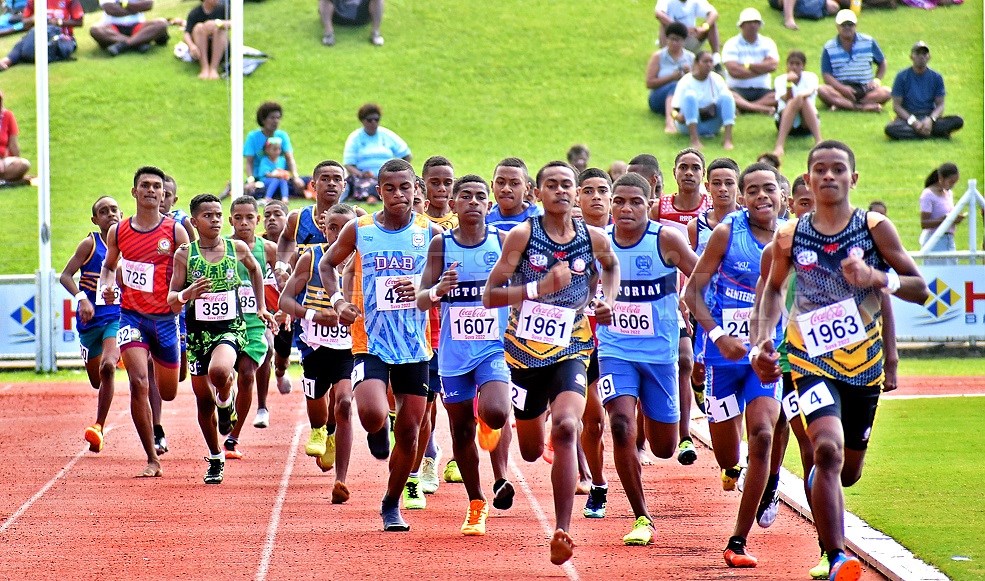TRIGGER warning: the following article is controversial and may trigger those who don’t handle differing opinions well.
There is a general consensus on the need to increase the number of Fijians, including indigenous Fijians, who own and operate businesses.
Several leaders, including Minister for iTaukei Affairs Ifereimi Vasu have expressed concern at the low number of people owning and participating in business.
However, this challenge extends beyond entrepreneurship — if Fiji wants to see more of its people succeed in business, engineering, and other high-level professions, it must start by changing the way academic achievement is perceived.
For decades, the Coca-Cola Games have been one of the most celebrated events in the country, bringing together thousands of students to compete on the track and field.
Young athletes dream of representing their schools, and winning a gold medal at the Games is a major achievement.
The event is covered extensively in the media with schools and communities rallying behind their athletes. The pride and prestige that come with excelling in sports are undeniable.
However, while sports provide an important avenue for personal growth and discipline, the reality is that only a tiny fraction of students will go on to become professional athletes.
The majority will not make a career in sports, yet there are no national competitions that celebrate academic excellence in the same way.
This raises an important question — what happens to the vast majority who don’t make it into professional sports? What backup do they have to earn a good living, and more importantly, what skills do they have to contribute to Fiji’s progress?
We desperately need more children whose strengths lie in math, science, debate, or problem-solving. Where are the grand events that inspire young minds to dream of becoming business owners, engineers, or inventors? Fiji has yet to create an environment where intellectual success is placed on the same pedestal as athletic achievement.
In other countries, academic competitions are given as much importance as sports. Events like the International Mathematics Olympiad, Spelling Bees, and debate championships are widely respected, with top performers earning scholarships and recognition.
I have lobbied and urged many past leaders, including education ministers, during my time as a government consultant to integrate academic competitions into the Coca-Cola Games.
Imagine if, to win overall, a school also had to earn gold medals in spelling bees, math competitions, and chess across all grade levels. How quickly would education gain the same excitement as sports? How much smarter and more ambitious would our young people become?
We could even see things like an athlete winning the 100 meter sprint, then rushing off to win another gold in the quiz competition.
Encouraging a culture that values academic success would not only provide recognition for high-achieving students but also shift mindsets on a national scale.
If children grow up seeing their peers celebrated for excelling in math, science, debate, and other intellectual fields, they will be more likely to believe that these areas are worth pursuing.
Remember that not even 1 per cent of the world’s billionaires are athletes.
It would help reinforce the idea that business acumen, engineering skills, and problem-solving abilities are just as valuable as athletic talent—and that excelling in these fields can open doors to success.
A structured approach to achieving this would be to officially integrate academic competitions into the Coca-Cola Games, making them a key part of the overall event. This could include nationwide quiz competitions, math and science tournaments, and public speaking challenges, running parallel to the athletic events.
By making academic excellence as competitive and prestigious as athletics, Fiji can inspire a new generation to strive for intellectual achievement and create a future where the country’s brightest minds are nurtured and empowered.
If Fiji wants to see more businesses and a larger number of professionals in high-paying fields, then it must start by shifting the culture. Sports will always have their place, but intellectual achievement needs to be celebrated just as much.
The country cannot afford to glamorise only one path to success when the vast majority of students will not become professional athletes.
The Ministry of Education must integrate academic competitions into the Coca-Cola Games, providing funding, policy support, and infrastructure to make intellectual achievement as prestigious as athletics. Coca-Cola and other sponsors should collaborate to support these competitions, offering incentives, scholarships, and media coverage to celebrate academic excellence.
The time for talk, declarations and proclamations is over. It’s time to act. Time to strategise for positive cultural shifts towards entrepreneurship and other fields that will improve Fiji overall.
Until next week, take care and be safe.
ARNOLD CHANEL is an investor and business executive with years of tech expertise. He can be contacted on ceo@vanguardtech.pro. The views expressed in this article are his and not of this newspaper



